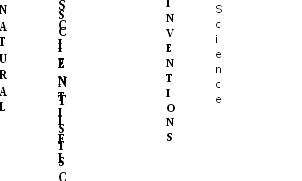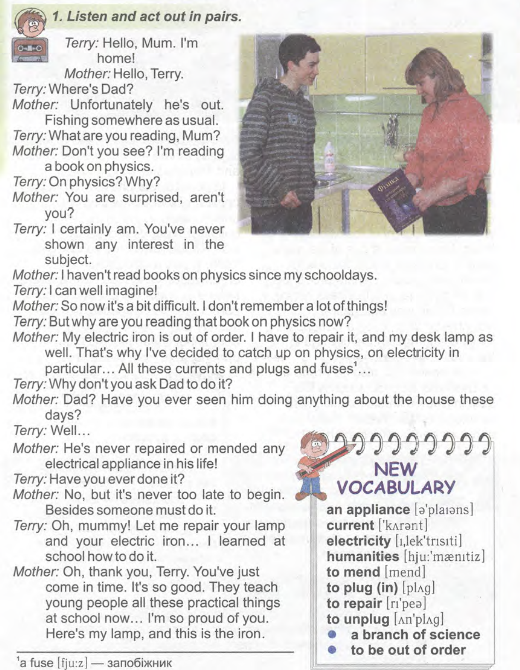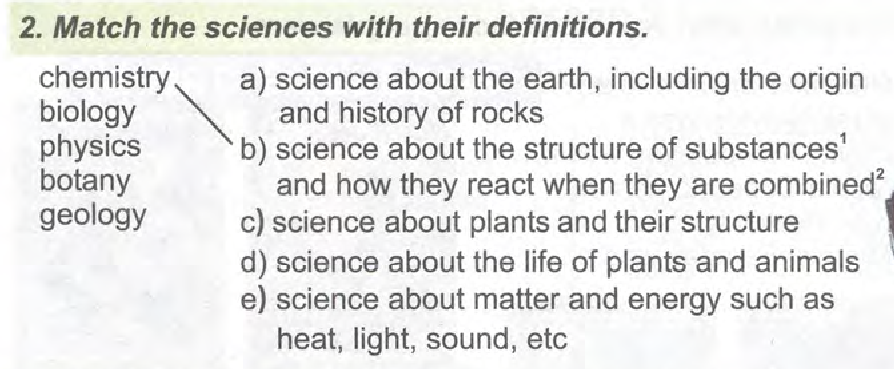
9 клас наука та винаходи 1
.docxРозгорнутий план-конспект уроку з англійської мови у 9-му класі
Тема: «Science and Inventions»
Підтема: «Science and Inventions in our life»
Цілі:
Практична: ознайомити учнів з новим лексичним матеріалом з теми «Science and Invention»; удосконалювати техніку читання; продовжувати формувати вміння писемного мовлення;
Освітня: розширити знання учнів про наукові галузі в Україні; поглибити знання учнів про граматичне явище – словотворення; формувати в учнів навички монологічного та діалогічного мовлення.
Розвиваюча: розвивати здатність мовного самоконтролю; розвивати ерудицію; розвивати зорову пам’ять, слуховий самоконтроль, чіткість та ясність вимови.
Виховна: виховувати самостійність; виховувати культуру спілкування англійською мовою; стимулювати і підтримувати інтерес до вивчення англійської мови;
Обладнання: підручник: Oksana Karpiuk – 9 клас, картки для роботи в парах (НО1), картки з диференційованим завданням (НО2), дошка.
Тип уроку: урок засвоєння нових знань
Рівень володіння іноземною мовою: В1–В2
Час проведення: 45 хвилин.
Схематичний план уроку
|
Початок уроку
|
2 хв 3 хв |
|
Основна частина уроку
|
35 хв. 7 хв. 10 хв. 3 хв. 15 хв. |
|
Заключна частина уроку
|
2 хв. 3 хв. |
Хід уроку
|
Етапи. Прийоми. |
Зміст
|
|
Етап 1. Початок уроку. Організація класу. Прийом: Привітання. Повідомлення теми та мети уроку. |
Teacher (T): Hello, children! I’m very glad to see you! Pupils (Ps): We are glad to see you too! T: Today we’ll start a new theme - «Science and Inventions», and at this lesson we are going to focus on certain areas of science and academic disciplines.
|
|
Eтап 2. Мовленнєва зарядка. Прийом: Метод «Мозкового штурму»
Етап 3: Підготовка до читання тексту. Прийом 1: Ознайомлення з лексичним матеріалом тексту Етап 4: Читання тексту Прийом: Читання та переклад тексту-діалогу в парах за ролями
Етап 5: Контроль розуміння тексту Прийом: Бесіда з учнями
Етап 6: Активізація лексичного матералу. Прийом1: Робота з картками
Прийом 2: Виконання вправ
Прийом 3: Робота в групах
Прийом 4: Самостійна робота
Етап 7: Повідомлення домашнього завдання Прийом: Повідомлення та пояснення домашнього завдання. Етап 9: Підсумки уроку Прийом: Бесіда з учнями в режимі T-P1-P2-P3 |
T: Look at the blackboard and say what words do you associate with the theme «Science»? Ps:
T: Very well. Look at the «New Vocabulary» box on page 78. Do you know the meaning of these words? P: No, we don’t know. T: Now, write down these words in your vocabulary. Are you ready? Repeat after me. Ps: Учні повторюють за вчителем слова. T: Now, read one by one. Ps… T: You see the text on page 78. Please, read and translate it in pairs. Ps:
T: What was Terry’s mother doing when he came home? Ps: She was reading a book on Physics. T: Why was she reading a book on Physics? Ps: She was reading a book on Physics because, her electric iron and desk lamp were out of order. T: What physical terms were used in the text of the dialogue? Ps: electric, currents, plugs, fuses, appliances. T: Now, let’s repeat our new vocabulary. You’ve received the cards (НО1), match the words with appropriate picture. Ps: …
T: Good, now open your book, ex 2, on p. 79. Ps:
T: The next task is ex. 3 on p. 79
Ps: На кожне запитання відповідають троє-п’ятеро учнів. T: You’ll work in pairs, look at your cards, you must choose the correct variant. Then read one by one. Ps: Read the sentences and circle the correct variant of the word. 1) Motherboard/GoogleTM is the most popular search engine on the Internet. 2) A DVD/Floppy Disc is an optical storage medium which has greater capacity and bandwidth than a CD. 3) The Operating system/Internet is the worldwide information highway comprised of thousands of interconnected computer networks, and reaches millions of people in countries around the globe. 4) Virus/Java is a program that infects a computer by attaching itself to another program which then spreads when that program is run. 5) ROM/RAM is the memory that can be read but not changed. 6) Downloading/Surfing is the process of transferring data or programs from a server or host computer to one’s own computer or device. 7) Java/Vlog is a general-purpose programming language developed by Sun® Microsystems. 8) Memory/ROM is the working space used by the computer to hold the program that is currently running, along with the data it needs, and to run programs and process data. 9) Program/Network is a group of interconnected computers, including the hardware and software used to connect them. 10) Downloading/Surfing means looking at a variety of things casually, especially while browsing the Internet or television channels. 11) File transfer/Uploading is the process of transferring data files or programs from a computer or device to a server — usually on the World Wide Web. 12) Vlog/DVD is an online video blog. T: Excellent! It was the first task in your cards. Let’s do the second. Read the text and continue the sentences below. SCIENCES Scientific fields are commonly divided into two major groups: natural sciences, which study natural phenomena (including biological life), and social sciences, which study human behaviour and societies. These sciences are called empirical, which means the knowledge must be based on observable phenomena and capable of being tested for its validity by other researchers working under the same conditions. The humanities are academic disciplines which study the human condition, using methods that are primarily analytic or critical. Examples of the disciplines of the humanities are ancient and modern languages, literature, history and philosophy. Formal sciences, like mathematics, statistics and logic, are important to the empirical sciences. The formal sciences are essential in the formation of hypotheses, theories, and laws, both in discovering and describing how things work (natural sciences) and how people think and act (social sciences). Mathematics, which is classified as a formal science, has both similarities to and differences from the natural and social sciences. It is similar to empirical sciences in that it involves an objective, careful and systematic study of an area of knowledge; it is different because of its method of verifying its knowledge, using a priori rather than empirical methods. Natural sciences study… Social sciences study… In empirical sciences the knowledge must be based on… The humanities are… Examples of the disciplines of the humanities are… The examples of formal sciences are… The formal sciences are essential in… Mathematics has both similarities to and differences from… Mathematics is similar to empirical sciences in that… Ps: Учні читають текст і самостійно доповнюють речення. По закінченні роботи вони ланцюжком читають відповіді. T: Open your diary and write down the homework ex.6 on p. 80
T: What topic have we discussed at the lesson today? What new words have you learned? What sciences can you name? Ps:… T: Very well, good bye pupils. Ps: Good bye teacher.
|




